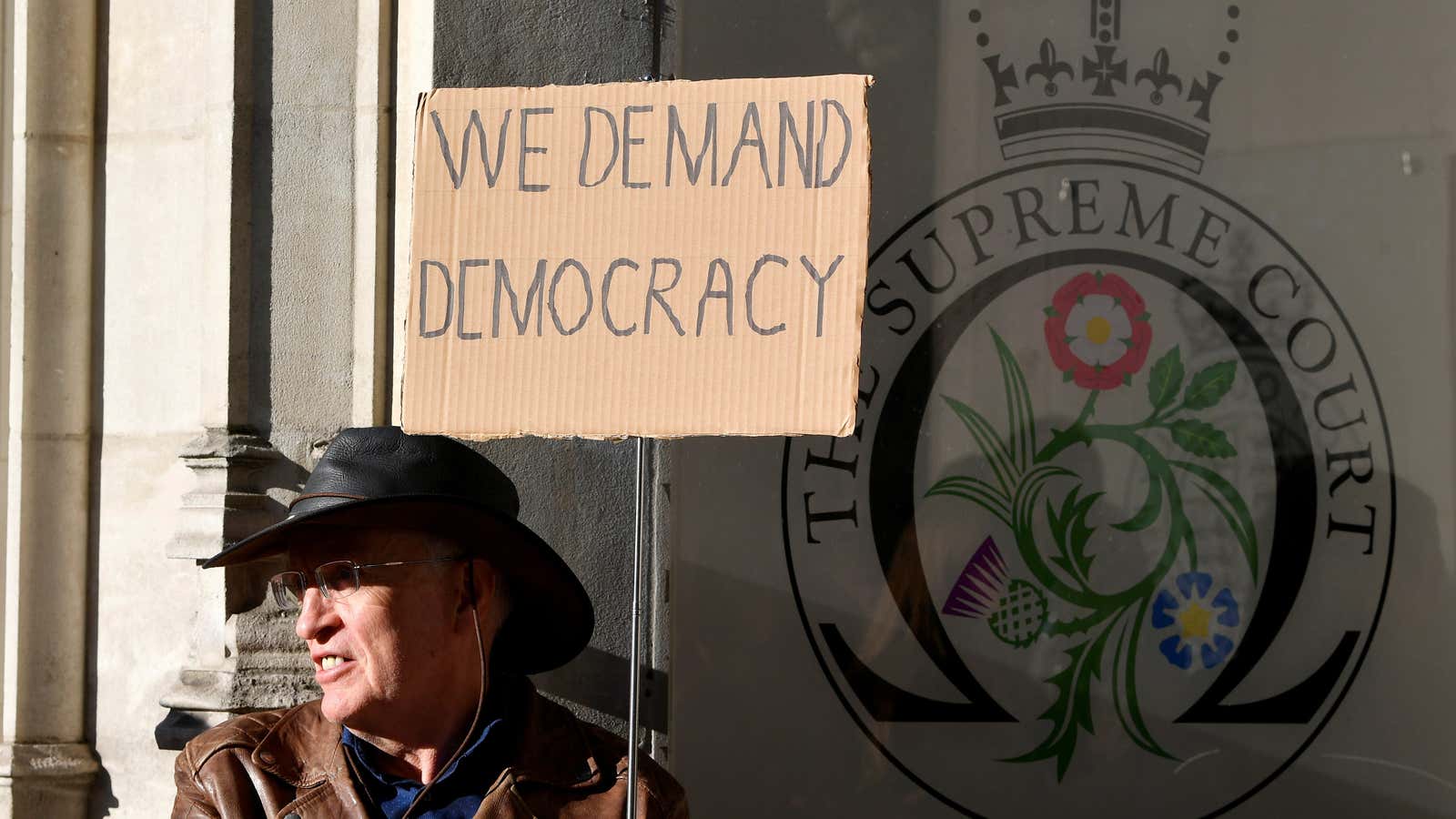The UK Supreme Court today has ruled that prime minister Boris Johnson’s decision to “prorogue” parliament was unlawful. The most senior judges in the country agreed that Johnson had an “improper purpose” when asking the Queen for the five-week suspension.
“Parliament has not been prorogued. This is the unanimous judgment of all 11 Justices,” the court said in its ruling (pdf).
Following the decision, speaker of the House John Bercow called on parliament to reconvene without delay, and said he would talk with party leaders. “In reaching their conclusion, they have vindicated the right and duty of parliament to meet at this crucial time to scrutinise the executive and hold ministers to account,” he said.
News of the ruling caused the British pound, widely considered a proxy for the risks of a no-deal Brexit, to rise amid choppy, volatile trading.
The verdict today comes after two lower courts ruled differently on the matter of prorogation. The top civil court in Scotland had earlier ruled in favor of around 75 MPs and peers who challenged the lawfulness of suspending parliament, while the high court in London found otherwise and said the matter was a political one.
The ruling has also established that political disputes fall within the purview of the UK’s top court, in a move with wide-ranging constitutional implications.
Critics against Johnson’s decision to suspend parliament say it was aimed at shutting down debate amid one of the most consequential periods in UK history—navigating how to handle Brexit, with a deadline for the divorce currently set for Oct. 31. The government, meanwhile, insists the lengthy suspension was needed to lay out a new legislative agenda.
Regardless, today’s decision is yet another blow to Johnson’s plan to deliver Brexit, with or without a deal in place. Since taking office in July, Johnson has lost his working majority in parliament, and MPs have voted to delay Brexit until Jan. 31 if he cannot secure a new deal with the EU.
Johnson is currently in New York for the UN General Assembly, and may have to cut his trip short. He previously declined to rule out proroguing parliament again.
